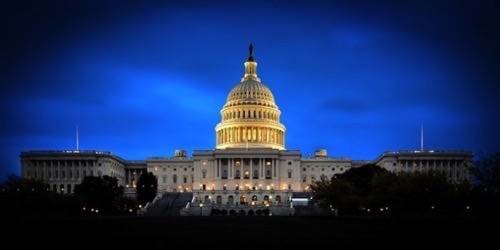
In the months leading up to the passage of CISPA, Google, AT&T and dozens of other companies unleashed a small army of lobbyists on the White House, Congress and the Senate. The crusade was just a fraction of the $32 million that the tech industry – which is fast becoming one of the most powerful political forces in Washington D.C. – has spent on lobbying so far this year. So how much did they spend to get CISPA passed?
Its companies have become some of the biggest spenders on lobbying, paying a combined total of nearly $1.3 billion to ensure that they have their say in legislation.
Federal disclosure laws require companies to report the total amount they spend on a lobbying firm and what topics and bills that firm worked on. But it doesn’t require that the company reveal how much was spent on each individual piece of legislation. It’s a loophole that lets companies, regardless of industry, conceal how much work they’re doing to influence legislation.
For example, in the first three months of this year, Google spent a little over $5 million on 19 lobbying firms and 70 lobbyists. They worked on things like job creation and clean energy bills, cloud computing and education technology. And somewhere in there “cyber security” and CISPA. For that, the lobbyists met with nameless members of Congress and the Senate, and with the Executive Office of the President, home of President Obama’s chief of staff, the economic and national security councils, as well as the office of science and technology. Google reports those surface-level details, but how much time and resources went into that work is unknown.
Missing the $1.3 Billion Dollar Forest
Focusing on one bill, like CISPA, misses the bigger power that the computer and Internet industry has developed in Washington. In the last 14 years, its companies have become some of the biggest spenders on lobbying, paying a combined total of nearly $1.3 billion to ensure that they have their say in legislation.
The people and political action committees associated with the industry are big givers, too. In the last presidential election they gave $41.4 million to federal candidates. But that’s a small fraction of the what the companies themselves are spending on lobbying – $126 million last year alone.
It’s not just big companies like AT&T and Google. According to The Center for Responsive Politics, it’s the combined strength of dozens of smaller companies that account for the industry’s increased clout. In total since 1998, the Internet and computer industry has even outspent traditional political powerhouses like the oil and gas industry.
Fewer Players Spending More
There was an explosive increase in lobbying by the Internet industry in the early ’00s. That slowed at the beginning of the recession and has been on the rise ever since. But while the total amount that companies are spending is up, there are actually fewer computer and Internet businesses and industry groups that are lobbying, down 30% from 2007.
Last year also saw another milestone: For the first time, Google surpassed Microsoft as the top spender on lobbying within the Internet and computer industry. That year it spent much of its lobbying efforts on the category that CISPA fell into: Copyright, Patent & Trademark.
Lobbying data from Opensecrets.org. Capitol photo courtesy of Shutterstock.

















